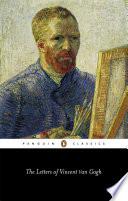Quotes from book
The Letters of Vincent van Gogh

The Letters of Vincent van Gogh refers to a collection of 903 surviving letters written or received by Vincent van Gogh. More than 650 of these were from Vincent to his brother Theo. The collection also includes letters van Gogh wrote to his sister Wil and other relatives, as well as between artists such as Paul Gauguin, Anthon van Rappard and Émile Bernard.Vincent's sister-in-law and wife to his brother Theo, Johanna van Gogh-Bonger, spent many years after her husband's death in 1891 compiling the letters, which were first published in 1914. Arnold Pomerans, editor of a 1966 selection of the letters, wrote that Theo "was the kind of man who saved even the smallest scrap of paper", and it is to this trait that the public owes the 663 letters from Vincent. By contrast Vincent infrequently kept letters sent him and just 84 have survived, of which 39 were from Theo. Nevertheless, it is to these letters between the brothers that is owed much of what is known today about Vincent van Gogh. Indeed, the only period where the public is relatively uninformed is the Parisian period when they shared an apartment and had no need to correspond. The letters effectively play much the same role in shedding light on the art of the period as those between the de Goncourt brothers did for literature.

“Admire as much as you can. Most people do not admire enough.”
1870s
Variant: Find things beautiful as much as you can, most people find too little beautiful.
Source: The Letters of Vincent van Gogh

1880s, 1880, Letter to Theo (Cuesmes, July 1880)
Source: The Letters of Vincent van Gogh
Context: I must continue to follow the path I take now. If I do nothing, if I study nothing, if I cease searching, then, woe is me, I am lost. That is how I look at it — keep going, keep going come what may.
But what is your final goal, you may ask. That goal will become clearer, will emerge slowly but surely, much as the rough draught turns into a sketch, and the sketch into a painting through the serious work done on it, through the elaboration of the original vague idea and through the consolidation of the first fleeting and passing thought.

“Seek only light and freedom and do not immerse yourself too deeply in the worldly mire.”
Source: The Letters of Vincent van Gogh

“To suffer without complaint is the only lesson we have to learn in this life”
Source: The Letters of Vincent van Gogh

1880s, 1880, Letter to Theo (Cuesmes, July 1880)
Source: The Letters of Vincent van Gogh
Context: So please don't think that I am renouncing anything, I am reasonably faithful in my unfaithfulness and though I have changed, I am the same, and what preys on my mind is simply this one question: what am I good for, could I not be of service or use in some way, how can I become more knowledgeable and study some subject or other in depth? That is what keeps preying on my mind, you see, and then one feels imprisoned by poverty, barred from taking part in this or that project and all sorts of necessities are out of one's reach. As a result one cannot rid oneself of melancholy, one feels emptiness where there might have been friendship and sublime and genuine affection, and one feels dreadful disappointment gnawing at one's spiritual energy, fate seems to stand in the way of affection or one feels a wave of disgust welling up inside. And then one says “How long, my God!”